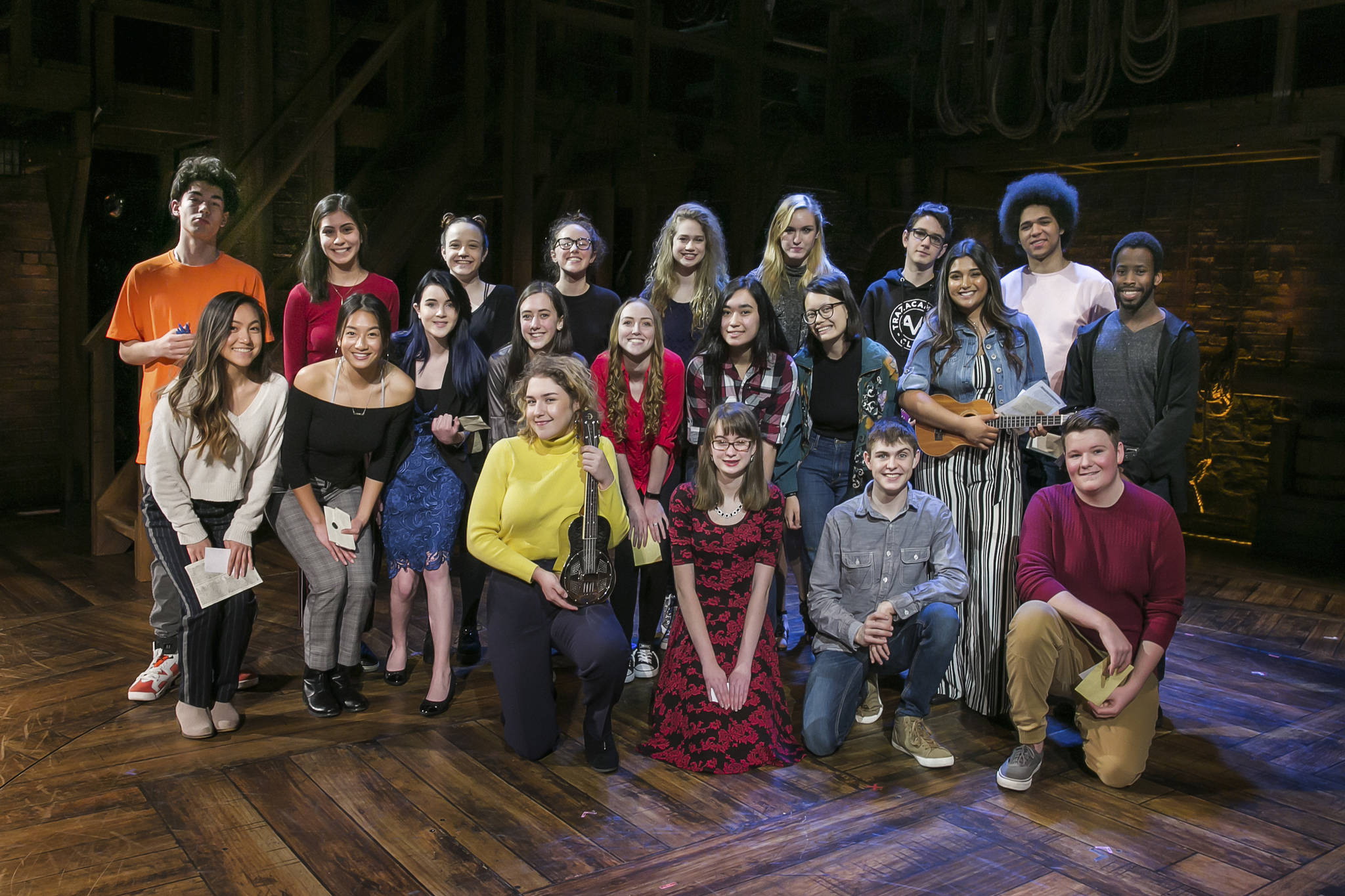On Wednesday afternoon, thousands of Seattle and Portland high school students laughed, cried, and hollered throughout a history lesson. Of course, Lin-Manuel Miranda’s hip-hop and R&B musical adaptation of founding father Alexander Hamilton’s life—performed mostly by actors and actresses of color—isn’t a standard textbook lecture.
The viewing of Hamilton was the culmination of a several-week lesson on American history called the Hamilton Education Program. Students created their own original poetry, songs, soliloquies, and raps based on their studies, then presented them on the Paramount Theatre stage before the show. This was followed by a question-and-answer session with the cast members, before finally seeing a performance of the Broadway hit for only $10 per ticket. Over 5,700 Seattle and Portland high school students saw the show during two all-student matinee performances on March 8 and 14.
“Our goal is to ensure that students have a shot to see Hamilton and use its words, music, and staging to further their understanding and enjoyment of American History, music, and drama,” Hamilton producer Jeffrey Seller said in a press release. “We’ve had the pleasure of expanding the education program outside of New York in Los Angeles, Chicago, and other cities around the country.”
During the critically-acclaimed musical, Hamilton ponders his own legacy through the reoccurring question of “Who tells your story?” Yet the refrain takes on a different meaning when his wife Eliza croons the words during the final song of the last act. As the lights on The Paramount Theatre’s stage dimmed, the character—whose presence is largely absent from history books—repeats the question as she lists off her own accomplishments. She dares the audience to consider the role of representation and power in the shaping of stories.
The significance of the oft-repeated question wasn’t lost on the 2,800 teachers and high schoolers in attendance at the March 14 matinee. Many of the attendees were students of color from 37 schools with a high percentage of low-income families. Similar to Eliza Hamilton, their stories are often missing from their history books.
Through their coursework and the matinee viewing, students saw parallels between the late 1700s as depicted in the show and current struggles for women’s rights, immigrants’ rights, and gun safety.
“You can see that in our government today, how there’s a lot of corruption … women are still trying to get equal pay and equal rights … and in immigration how our president isn’t really letting people in and out. And how people are getting deported back to their own country, just because they are not a legal citizen,” Anna Le, a Franklin High School junior, told Seattle Weekly after the performance. As part of the curriculum, Le and her classmate Ashley Escalante created a song and rap about Alexander Hamilton, which allowed them to become closer friends and to be more engaged in their studies.
At a time when anti-immigrant narratives are readily present in the national conversation, Summit Sierra charter school junior Malica Richards was delighted to see ethnically diverse cast members play the role of white characters. Richards was particularly impressed that George Washington was played by Asian American actor Marcus Choi. “I don’t usually see a lot of people of color, especially Asians, in media in America,” 17-year-old Richards said. “It made me feel happy that someone so important as George Washington was played as an Asian.”
Just as gun violence played a prominent role in Hamilton (spoiler alert for those who napped through history class: there’s a duel that doesn’t end well for Hamilton), students also recognized the need for greater safety in their own education. The March 14 viewing coincided with that morning’s National School Walkout, during which students from at least 19 Seattle schools protested gun violence in commemoration of the 17 people who were fatally shot in Parkland, Fla. a month earlier. Although the students in attendance missed the walkouts at their own schools, a few of them took turns approaching the stage and read the names of each of the 17 victims prior to the matinee.
After the show, students were full of energy as they piled out of the theater to catch buses back to their schools. They shared stories about a newfound feeling of empowerment, something that students throughout the nation are discovering as they begin to shape their own narratives.
mhellmann@seattleweekly.com








